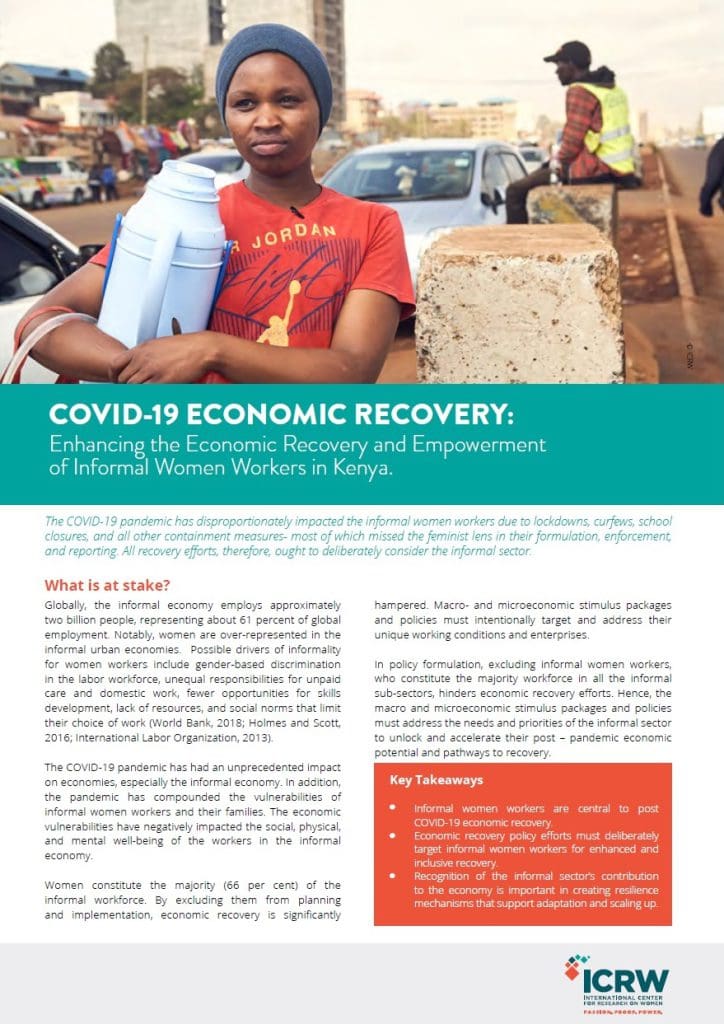
Enhancing COVID-19 Economic Recovery & Empowerment of Informal Women Workers in Kenya
 Globally, the informal economy employs approximately two billion people, representing about 61 percent of global employment. Notably, women are over-represented in the informal urban economies. Possible drivers of informality for women workers include gender-based discrimination in the labor workforce, unequal responsibilities for unpaid care and domestic work, fewer opportunities for skills development, lack of resources, and social norms that limit their choice of work.
Globally, the informal economy employs approximately two billion people, representing about 61 percent of global employment. Notably, women are over-represented in the informal urban economies. Possible drivers of informality for women workers include gender-based discrimination in the labor workforce, unequal responsibilities for unpaid care and domestic work, fewer opportunities for skills development, lack of resources, and social norms that limit their choice of work.
The COVID-19 pandemic has had an unprecedented impact on economies, especially the informal economy. The pandemic has also compounded the vulnerabilities of informal women workers and their families. Women constitute the majority (66 percent) of the informal workforce. By excluding them from planning and implementation, economic recovery is significantly hampered. Macro- and microeconomic stimulus packages and policies must intentionally target and address their unique working conditions and enterprises.
In policy formulation, excluding informal women workers hinders economic recovery efforts. Macro- and microeconomic stimulus packages and policies must address the needs and priorities of the informal sector to unlock and accelerate their post – pandemic economic potential and pathways to recovery.
In this brief, learn more about these impacts on women in the informal economy, as well as our recommendations for policy and practice.
Ajema, C., Suubi, K., Wandera, N., Afifu, C., and Mugyenyi, C. (2021). COVID-19 Economic Recovery: Enhancing the Economic Recovery and Empowerment of Informal Women Workers in Kenya. International Center for Research on Women [Policy Brief]
